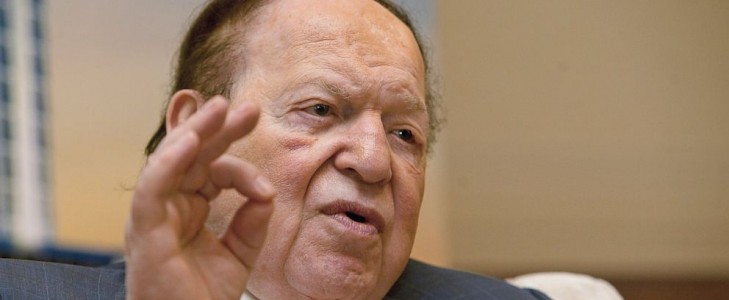Despite lacking any concrete studies or facts to back up his efforts, Sheldon Adelson poses a serious threat to the spread of online gaming in the United States. The Las Vegas Sands Chairman is worth over $37 billion and has said that he’ll spend “whatever it takes” to stop internet gaming. But if this is truly the case, Adelson better open his wallet a little wider because his company is being dominated in the spending category.
OpenSecrets.org, which tracks political contributions, states that Las Vegas Sands spent $290,000 on lobbying in the 2nd Quarter of 2014. This brings the total amount that Sands has spent up to $460,000, which is only $10k shy of what the company paid in 2008 – a record for their lobbying expenditures.
However, the $460k is nothing compared to what online gaming proponents have shelled out. Caesars Entertainment, which owns WSOP.com in both New Jersey and Nevada, spent $1 million in the 2nd Quarter. Overall, they’ve paid $1.8 million to Washington DC lobbyists, which is over five times what Sands has spent.
It doesn’t end here, though, because MGM Resorts and Boyd Gaming spent $240,000 and $230,000 respectively in the 2nd Quarter. Churchill Downs, which is developing their internet gaming operation, added another $100,000 in lobbying expenditures.
Sheldon Adelson could be spending obscene amount of money
While the numbers from OpenSecrets.org are quite surprising, given all of the fuss made about Adelson, they only cover money given to DC lobbyists. What people won’t find here are outside spending, personal contributions to candidates and state-level political donations.
So it’s likely that Adelson could be spending an obscene amount of money away from lobbying. This is especially the case when you consider that Adelson and his wife, Miriam, spent $92 million total on the 2012 election cycle.
Adleson buys two politicians that will ban online gaming
Thus far, the 80-year-old’s spending efforts have pocketed a couple of politicians, who’ve written bills that would ban online gaming at a federal level. However, nobody truly expects both the House and Senate to pass either of these bills – especially when three states have already poured tens of millions of dollars into online gaming operations.
But this isn’t to say that Adelson can’t at least stall internet gaming from sweeping across the US. He essentially got the American Gaming Association to drop their support for the iGaming movement. Adelson’s also been running several commercials throughout America that attack the morality of online gaming.
On the other hand, multiple state governments seem to heavily support the activity, considering it part of the solution to their budgeting problems. So as long as government support is there on a state level, Adelson will have to keep spending and spending in what could one day be considered a vain attempt.
